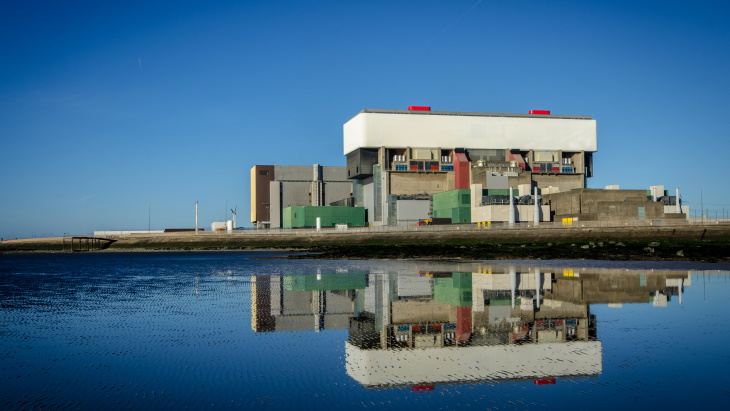
The consortium includes EDF, construction material manufacturer Hanson, National Nuclear Laboratory (NNL) and Vulcan Burners.
The concept is to demonstrate solid oxide electrolysis (SOEC) integrated with nuclear heat and electricity from EDF Energy's Heysham site in Lancashire, England, to provide low-carbon, low-cost hydrogen via novel, next generation composite storage tankers to multiple Hanson asphalt and cement sites in the UK. The project partners claim the technology could improve hydrogen production efficiency by 20% when compared with conventional electrolysis. At present, no facility in the world has used hydrogen as fuel for asphalt production.
In November 2022, the UK Department for Business Energy and Industrial Strategy awarded the Bay Hydrogen Hub - Hydrogen4Hanson project almost GBP400,000 (USD499,500) in funding for a feasibility study of the concept. This funding was made available from the UK government's GBP1 billion Net-Zero Innovation Portfolio, under the Industrial Hydrogen Accelerator Programme.
The Department for Energy Security and Net Zero has now announced a further GBP6.1 million from the same pot for the project, a figure that will be matched by the project partners.
The government and industry funding, which combined will exceed GBP15 million, will go towards developing a final design for the hydrogen production, distribution and end-use technology and for exploring the full costs and delivery plans.
Over the coming months, the project partners will develop the full designs for the electrolyser and scope and cost all works that will be required at Heysham 2 to take the scheme forward. Once this work is concluded, a decision will be made which could see construction, and supporting physical works, begin at the power station in early 2024.
"For decades nuclear power in the UK has provided zero-carbon electricity to the grid and helped to constrain the nation's emissions, collectively saving more than 700 million tonnes of carbon dioxide going to the atmosphere," said Rachael Glaving, commercial director at EDF. "But we know nuclear power can do even more to drive towards decarbonisation. Our hope is that this project shows industries that are dependent on fossil fuels, as well as the nuclear sector, that by working together we can build a lower carbon future for industry and confirm the UK's place as a global decarbonisation technology leader."
NNL Vice President Government and New Build, Gareth Headdock, added: "This project places the UK as a global leader in the development of nuclear enabled hydrogen. We are really excited to see this new application of nuclear energy, along with the increasing investment in advanced nuclear. As we invest in the next generation of scientists and engineers, the Bay Hydrogen Hub is building the skills we need for our hydrogen future."
The Heysham site is divided into two separately-managed nuclear power plants - Heysham 1 and Heysham 2 - both with two reactors of the advanced gas-cooled reactor type. Heysham 1 began operating in 1983 and is expected to shut in 2026. Operation of Heysham 2 began in 1988 and is expected to end in 2028.